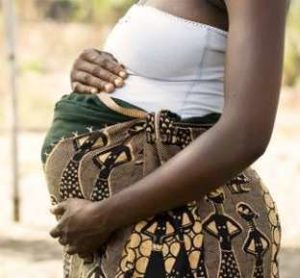More than three million teenage girls undergo unsafe abortion – Research
 Research has indicated that more than three million girls between the ages of 15 and 19 go through unsafe abortion globally every year.
Research has indicated that more than three million girls between the ages of 15 and 19 go through unsafe abortion globally every year.
Madam Ama Nyankoma Asirifi, Bono, Bono East and Ahafo Regional Adolescent Heath Focal Person of the Regional Health Directorate, made the disclosure in a presentation on Adolescent Sexually and Reproductive Health Right at a sensitization forum in Sunyani.
Jointly organised by the Regional Coordinating Council (RCC) and the Regional Gender Ministry, it was supported by the United Nations Development Fund (UNDP) aimed at resolving the dangers of the youth in ensuring a vibrant health and healthy nation in the future.
It was attended by traditional rulers, religious leaders, members of Civil Society Organisations (CSO), Comprehensive Sexuality Education (CSE), Assembly members and Farmer Based Organisations (FBOs) in the Region
She mentioned that 18.8 percent of induced abortion occurred in girls around 20 years, whilst 15 percent unsafe abortion occurred in girls between the ages of 15 and 19 globally.
Mr Asirifi stated that unsafe abortions could be resolved if the youth were abreast with modern family planning method and did not resort to unskilled persons or used dangerous methods that could lead to complications.
She observed that unsafe abortions could lead to blood loss and other medical emergencies and entreated health workers not to allow their acts to become barriers to accessing services by the young ones.
Madam Asirifi called on the media to work with the Civil Society Organizations in promoting Sexual and Reproductive Health and Right (SRHR) Services and also support community initiative related to sexual and reproductive health and right.
She said a high number of the youth suffer illnesses and deaths each year with preventable and treatable conditions because they lacked access to better information on health.
Madam Asirifi observed that investing in the health education of young people would lead to significant cost savings as well as resources available for socio-economic development.
She stated that young people have right to receive accurate sexual reproductive health information and services without discriminations and emphasized that the youth should have safe sexual life and should be assisted with the capacity of information on public health to help reduce morbidity and mortality associated with sexual and reproductive health among the adolescents.
We need to improve sexual and reproductive health of adolescents in the country, she said, adding that the Adolescents and young people were subjected to patterns of sexual behavior, harmful and cultural sexual practices, early sexual debuts, sexual abuse, premarital sex and lack of access to family planning education and services.
Madam Asirifi said the situation often led to early and unwanted pregnancies, induced abortions, Sexually Transmitted Infections( STIs) and HIV infections and noted that young people were generally underserved in the current health care delivery system where sexually and Reproductive Health Right (SRHR ) services were available.
She stated that young people require not only basic information about their bodies, prevention of HIV, AIDS and pregnancy, but also age-appropriate services that address gender equality, empowerment, rights and responsibilities, and sexual and reproductive negotiation and decision making.
Source: GNA
